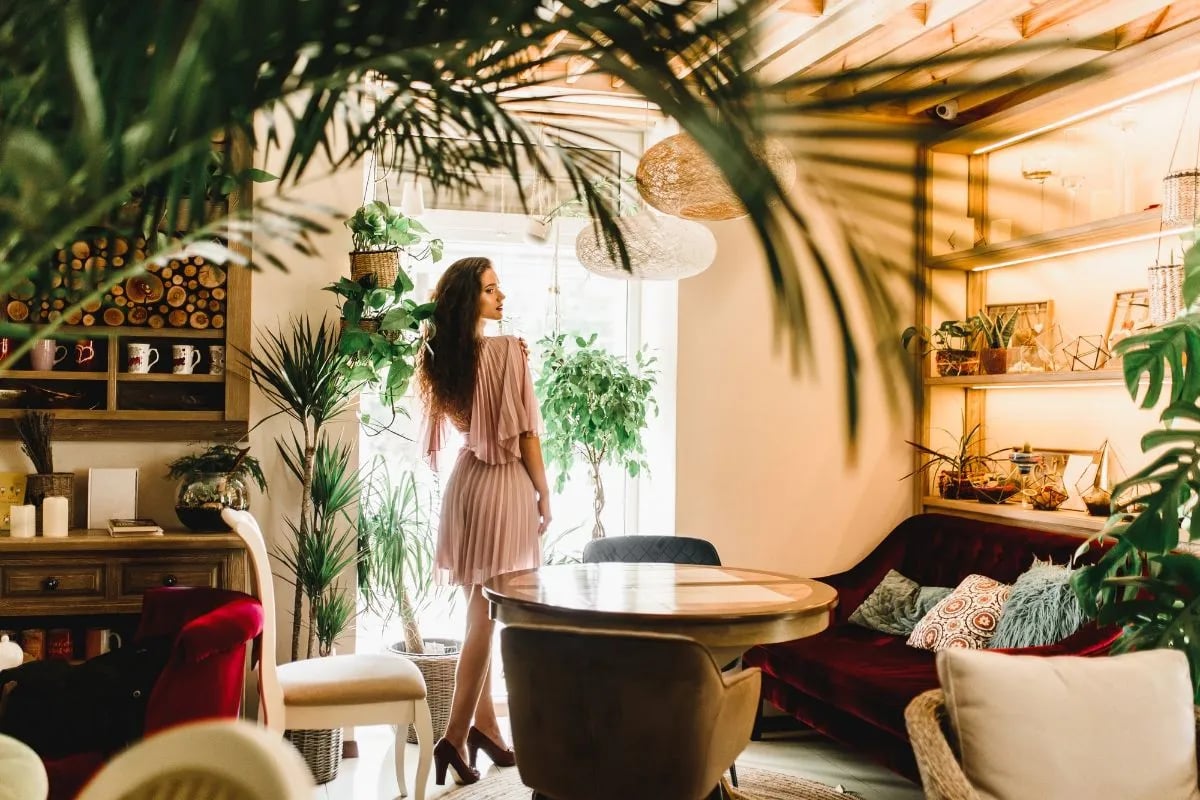The essential requirements that all Boutique Hotels should meet
What is a Boutique Hotel?
By the mid-1980s, Boutique Hotels were on the map in major centres for fashion such as New York, London, and San Francisco, and today the category is available worldwide, as personalisation and individual experience become ever more valued.
‘Boutique Hotel’ is now shorthand for an independent place where design is paramount, with striking and stylish decor, often reflecting the predominantly urban environments of destination cities. Countryside boutique hotels have also become popular, where the idiosyncrasies of a building or town are capitalised on to provide a unique and memorable guest journey. So although it’s a slightly fuzzy hospitality category, ‘boutique hotel’ is recognisable by the industry and guests alike. But what are the common characteristics of all successful boutique hotels? Let’s take a look:
Small is beautiful for boutique hotels
Very few boutique hotels have more than 100 rooms, which would take them into a different league where the qualities of design and uniqueness are harder to sustain. Most boutique hotels have far fewer rooms, which means that their potential for personalisation is greater. For example, a small boutique hotel can have decor and furnishings which express a different theme in each room. There could be a ‘sage bedroom’, a ‘saffron bedroom’ or rooms which reflect some aspects of different continents. Rather than being offered identical accommodation, guests can enjoy the experience of searching for and discovering entirely new themes of interior decoration. Many boutique hotels are in renovated old buildings, often with no history of hospitality, so the idea of individually tailored rooms makes sense. Rather than trying for a ‘one size fits all’ standardisation, the hotelier and their designers can match themes and spaces to provide a unique experience in every room.
Independence is a hallmark of boutique hotels
While it’s true that some chains have tried to diversify into the boutique hotel market, it’s not an entirely convincing exercise because hotel chains have strict brand values and operational guidelines that must be adhered to, which is rather the opposite of the boutique concept. So most true boutique hotels are standalone operations, usually with very hands-on owners and management. They’re in the market because they are passionate about quality, design, and going the extra distance for their guests.
Location - where the boutique hotel is the destination
Location is important for all types of accommodation, but whereas many travellers will select their hotel based on convenience, such as how close it is to the airport or motorway, boutique hotels are more destination-oriented. You’ll find boutique hotels in trend-setting and upwardly mobile neighbourhoods, in places near to interesting sites, and with restaurants and coffee shops close by. Guests will book a boutique hotel precisely because it is a boutique hotel where they can expect higher levels of personalisation and experience a unique sense of design.
Boutique hotels often integrate local culture and heritage into their guest experiences by showcasing artwork, décor, and architectural elements inspired by the destination's history and traditions. They may collaborate with local artisans or cultural organizations to offer unique activities such as guided tours, art exhibitions, or performances that celebrate the region's heritage. By immersing guests in the local culture, boutique hotels create authentic and memorable experiences that distinguish them from chain hotels and resonate with discerning travellers seeking a deeper connection to their surroundings.
The aesthetic appreciation of boutique hotels is paramount
‘Design’ and ‘style’ are the keywords when it comes to boutique hotels. To be successful they must show a keen aesthetic sense which is clearly different from ‘run of the mill’ hotel offerings. ‘Designer clothes’, ‘Designer sunglasses’, and all the other tags that ‘Designer’ can be applied to are sometimes hard to define, and yet we certainly recognise these qualities. Design is apparent when thought has been put into products and services which raises them above the purely functional. Boutique hotels seek to delight their guests by consistently having touches of design around - in furniture, decor, colour schemes, and often with eye-catching paintings or sculptures to be enjoyed.

Boutique hotels ride the wave of trends
Like the word ‘Design’, ‘Trendiness’ is also tricky to define, and yet can easily be observed. Trends are when new things start happening and people embrace the change. It certainly occurs in fashion, entertainment, and likewise in hotels. As is often the case, the people who set trends are young and quite affluent. Why would they want the same hospitality offerings as the previous generation? That’s boring and so last year! The uniqueness of boutique hotels shows an awareness of trends and rides the wave of change. In particular boutique hotels appeal to the search for personalisation that guests now value so highly. Clearly, a hotel that is in itself a highly personal expression of the owners, management, and staff has much more ‘cut through’ to trend-conscious guests.
Boutique hotels can be at the forefront of eco-awareness
Guests for every type of hotel have become increasingly aware of ecological issues, and most hotels of any size now promote best practices in terms of energy and water-saving measures, and conscious use of resources. Boutique hotels tend to go beyond the norm and have state-of-the-art HVAC systems, smart electrical sockets, and the ability of guests to control aspects of their personal environment, such as heating and air conditioning from their chosen device. To some extent this is because boutique hotels are generally in recently renovated buildings, compared to the legacy stock of hotel chains, so it’s easier to adopt the latest ecological thinking. Very importantly eco-awareness is also expected and appreciated by guests.
Tech solutions are no longer ‘optional’ for boutique hotels
The new generation of hotel guests are highly tech-adept and can achieve miracles of communication using their phone and their thumbs. Their world is about always-on internet (high speed of course) and apps for everything. It’s expected that their hotel of choice will provide great connectivity, seamless booking, payment, check-in and check-out services, as well as add-ons such as ‘Guest Advisor’ services. Boutique hotels must satisfy these needs, and many already do. It’s another edge they can provide which is sharper than the average chain hotel.
How Boutique Hotels should meet requirements
Taking all of these characteristics into consideration, how should boutique hotels meet market requirements, to delight their guests?
1. Size of the hotel
Be aware of the size of the offering. There’s no strict rule, but once past 100 rooms, the description ‘boutique’ starts to fade. It’s a case of ‘small is beautiful’, and the fewer the number of rooms, the more can be made of them to provide a unique experience for guests. Smaller hotels can leverage their uniqueness, and use stunning photographs and videos to encourage bookings.
Independence: Independence: The independence of a boutique hotel is a major advantage, especially in the eyes of younger and upwardly mobile guests. With independence comes the cachet of owners and management being able to demonstrate that they really care about the quality and aesthetics of their offering. The implicit promise of a boutique hotel is that it must ‘go the extra mile’ for its guests, and this should form an important part of the marketing message.
2. A buzzing location
Location is important for boutique hotels, which should ideally be situated in a ‘happening’ city quarter, where guests can easily reach restaurants, coffee bars, and entertainment. Part of being trendy also means connecting with the community and making the hotel bar or dining areas attractive to the right demographic of local people. If a buzz can be generated within the local scene, then when guests arrive, there is already a great feeling around the place.
3. Design and style
The look and feel of all the design elements of a boutique hotel should give guests the ‘wow factor’ of never having seen quite the same things in any other hotel. Even the most functional items - a tap, a light switch - can be ‘Designer’, and art should be original and eye-catching.
4. Catching the wave of new trends
When people spot a trend - whether it’s in music, movies, or any other activity, they like to communicate it with others, and that’s done most of all through social media. A successful boutique hotel should be riding trends, and indeed making trends, so that it will get more and more attention. An example is the increasing trend of Digital Nomads to expect communal areas with 24/7 food and beverage availability, where they can work and socialise.
5. Eco awareness
Boutique hotels are generally ahead of the curve with ecological issues, often because owners are motivated by personal concern for the planet. Guests share these concerns, and the ‘greener’ a boutique hotel is and is seen to be, the better. We’re not talking about ‘greenwashing’ here, but genuine initiatives for better waste management and recycling, energy use, and water saving. Making eco-consciousness a cornerstone of the boutique hotel’s offering adds credibility and is attractive to guests.
6. Cutting-edge technology
Seamless technology is absolutely essential for all boutique hotels, which should be at the forefront of the hospitality industry in their use of touchless solutions. From the first guest contact - most likely through the hotel website - the process of booking and confirmation must be smooth. Self-check-in has to be achieved swiftly and electronically, with keyless access to the guest’s room preferred. Once the guest is checked-in, advice, offers, and upsells should all be routed to the guest’s chosen device, using their preferred channels of communication.
7. Culinary differentiation
Boutique hotels often differentiate themselves in culinary experiences by offering unique dining concepts curated by renowned chefs or focusing on locally sourced ingredients to create distinctive menus. They may host special food events, such as themed dinners or cooking classes, to engage guests and provide memorable dining experiences that reflect the hotel's individuality and style.
8. Maintaining Exclusivity and Intimacy
As boutique hotels gain popularity, maintaining a sense of exclusivity and intimacy becomes crucial. They can achieve this by limiting the number of rooms or suites, ensuring personalized service, and maintaining a strong connection with guests through loyalty programs or exclusive perks. Additionally, boutique hotels can create private or semi-private spaces within the property, such as secluded gardens or rooftop terraces, where guests can retreat and enjoy a sense of privacy amidst the buzz of the surrounding area.
Aesthetics, style, and technology - the essentials for boutique hotel success
If you’re a modern hotelier who is already rocking with a boutique hotel, then perhaps there’s not much we can tell you about style and aesthetics that you don’t already know, although it’s true that we have worked with a lot of boutique hotels as well as big chain hotels. That’s because we are SabeeApp, a company with over ten years of international experience in the hospitality industry. Our expertise is all about the technology that enables hotels to operate smoothly, efficiently, and profitably while helping guests have a great experience. Our proven cloud-based Property Management System is ideally suited to the very specific needs of boutique hotels, and is fully customisable. With our PMS you can manage and synchronise your daily admin tasks from one dashboard, including reservations, invoices, guest communication, housekeeping, and reporting. That’s only the start though, and there are a host of additional features and apps which mirror and enable the smooth running of your hotel, and support your dedication to providing a truly personalised guest journey. We know and understand the requirements that all boutique hotels should meet, and we have the modern technology to support every aspect of seamless, smooth operations. Please do get in touch for a free, no-obligation demo of what SabeeApp can do for your



